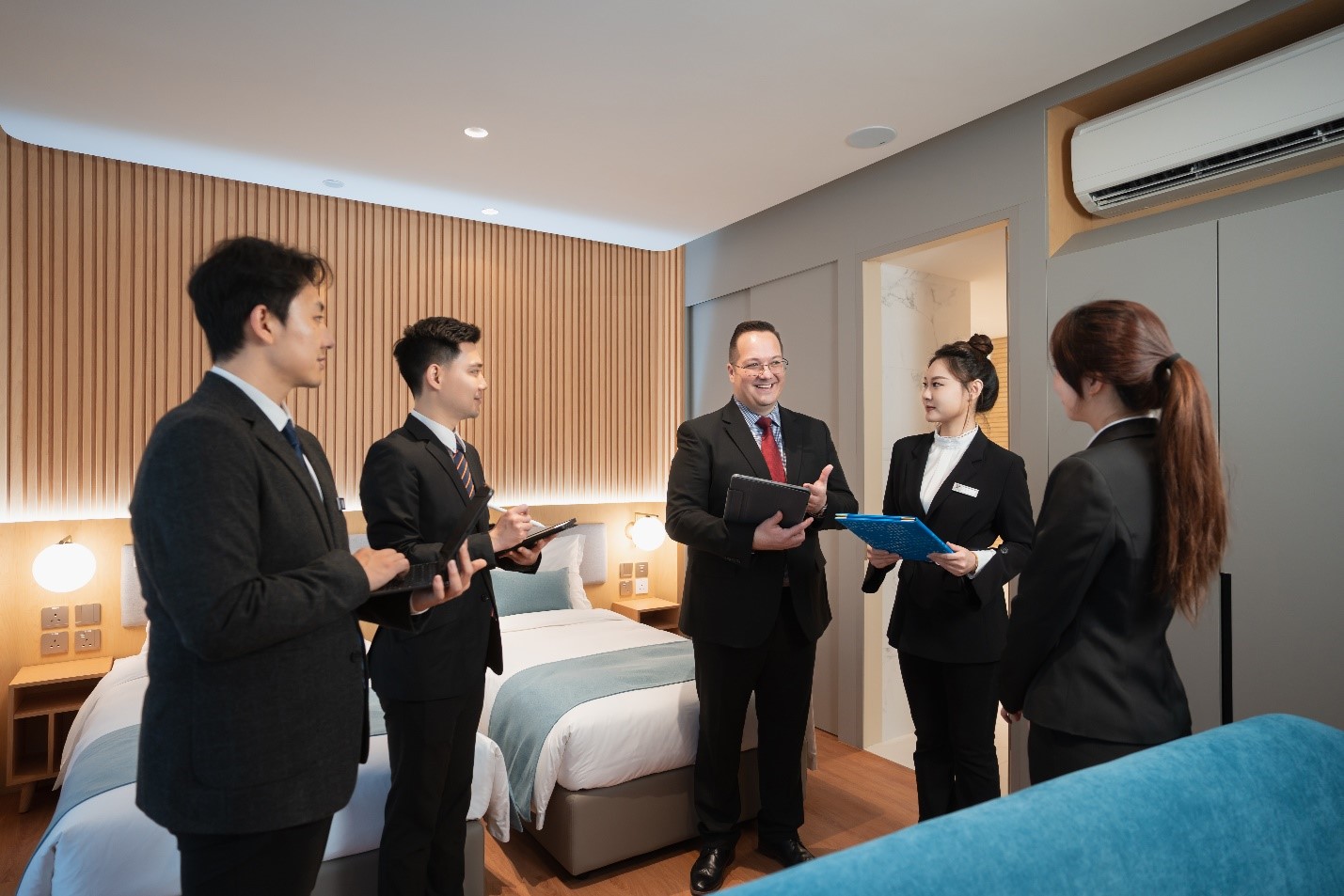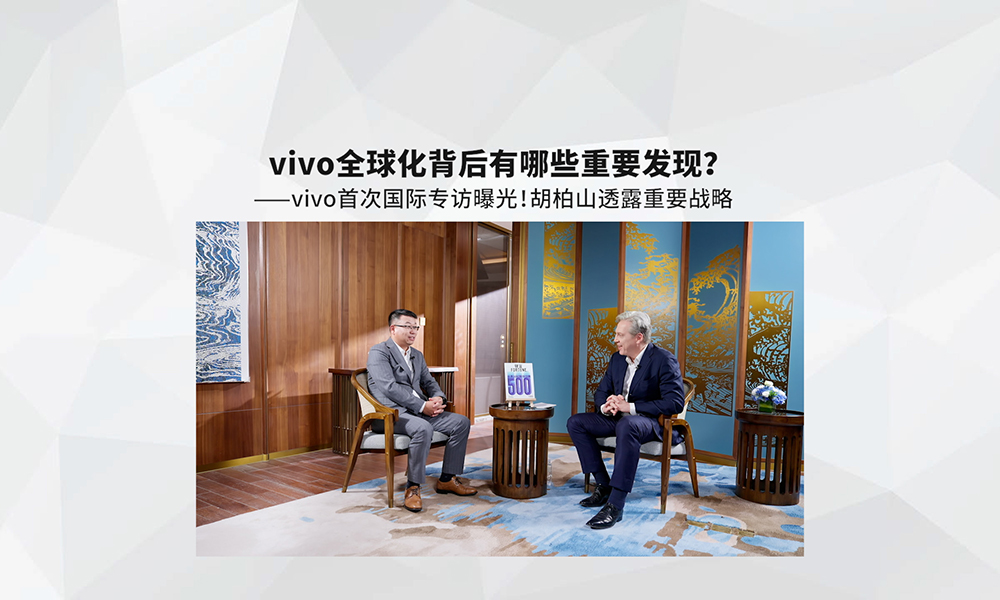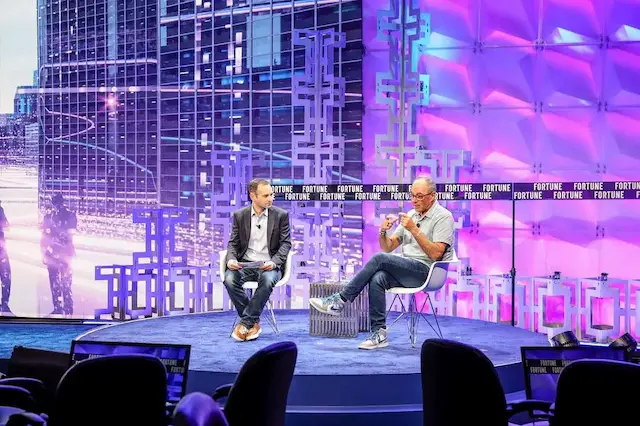职场伴侣的喜与忧
|
戴维•库尔茨在为自己现在的妻子瑞贝卡挑选订婚戒指时,曾向“工作配偶”克里斯汀征求意见。他把照片发给她,向她请教戒指的款式,直到找到最完美的那一款。他与克里斯汀在一家科技初创公司共事,两人共用一间办公室,每天在一起“打配合”的时间有14个小时。库尔茨追求瑞贝卡的整个过程中,克里斯汀一直在为他出谋划策,包括筛选网上约会资料,编辑电子邮件,以及提供服装建议等。
来自洛杉矶的创业者库尔茨说道:“我清楚记得,我与我妻子第一次约会的时候,是她帮我打扮着装。她来参加我的婚礼时,我在所有人面前感谢她:‘多亏了克里斯汀,我才没把那次约会搞砸。’。”
初创公司的工作环境处于高压,这两位似乎很自然地就成了亲密的同事。克里斯汀已经结婚,还有一个孩子,两人从一开始就不可能发生什么“浪漫的故事”。很快,库尔茨就开始替她取干洗的衣服,她也会帮库尔茨去药店买药。
这样的关系让工作充满了乐趣,因为他们对对方的项目会更感兴趣,库尔茨回忆道。而且,两人对工作环境达成的共识让他们可以非常轻松的讨论想法或分享建议。他说:“工作中,有人能够理解你在说什么,这一点非常可贵。你不可能总去找爱人或女朋友,让她们理解你对工作的想法。”
当工作与个人生活纠缠不清时
芝加哥培训服务公司JB Training Solutions总裁、《经理人3.0》(Manager 3.0)一书的作者布拉德•卡什表示,在许多行业,“工作配偶”现象是“每周7天,每天24小时”工作模式的必然产物。卡什说:“人们会讨论与工作配偶多年的关系。如果这种关系处理得当,会非常完美。”如爱人般亲密的同事关系在不同职务之间需要经常配合的行业里更为常见。例如,在广告业,文案团队与美工团队经常数年甚至数十年一起密切合作,有时候甚至会整个团队一起跳槽到竞争对手的公司。执法合伙人之间也有类似的关系。写作拍档茱莉亚•莫斯金与吉姆•西弗森在两人合著的烹饪图书《厨房大战:2位厨师,12项挑战,125份食谱,一场史诗般的厨房争夺战》(CookFight: 2 Cooks, 12 Challenges, 125 Recipes, an Epic Battle for Kitchen Dominance)称呼彼此是“工作中的爱人”。书中按时间顺序记录了考验两人友谊的烹饪挑战。
工作时与自己可以完全信任的比邻而坐肯定有它的优势。这种亲密的同事可以以一种工作之外的朋友或真正的配偶不可能有的方式,理解工作中出现的状况和趣事。
卡什说:“这种关系可以让你与一个信任的人分享自己的创意,或者向他征求意见。”他发现,凡是有“工作配偶”的人,在计划跳槽去竞争对手那里之前,会再三考虑,正是因为受到这种关系的影响。“同事是留住员工的无名英雄。” |
|
|
When David Kurtz was browsing for engagement rings for his now-wife Rebecca, he sought advice from his "work wife" Christine, texting her photos and consulting her on styles until he found the perfect art deco number. He and Christine shared an office at a tech startup, putting in 14-hour days and working closely with each other. Christine helped Kurtz every step of the way in his courtship of Rebecca, from screening online dating profiles to editing his emails and suggesting outfits.
"I clearly remember her getting me dressed for my first dates with my wife," says Kurtz, a Los Angeles-based entrepreneur. "When she came to my wedding, I had to thank her in front of everybody, 'Christine helped me not screw this one up.' "
It seemed natural for the two to become close at work, in a pressure-cooker startup environment. Christine was married with a child, and romance was off the table from the beginning. Before long, Kurtz was picking up her dry cleaning, and she was grabbing his prescriptions at the pharmacy.
The relationship made work more fun, because they were more interested in each other's projects, Kurtz recalls, and their shared understanding of the work environment made it easy to discuss ideas or share advice. "It's of great value to have someone who knows what you're talking about," he says. "You can't always turn to your spouse or girlfriend and have them understand what you mean about work."
When work and personal lives blend
The phenomenon of a "work spouse" is a natural outgrowth of the 24-7 work culture in many industries, says Brad Karsh, president of JB Training Solutions and author of Manager 3.0. "People talk about relationships they've had for years with their work spouse. If it's managed and handled appropriately, it's perfectly fine," Karsh says. Spouse-like partnerships at work are more common in industries where people with different job functions need to pair up frequently. In advertising, for instance, copywriter-art director teams might work closely together for years or even decades, sometimes leaving the same company to go to a competitor as a team. Law enforcement partners experience the same kind of bond. And writing partners Julia Moskin and Kim Severson refer to each other as "work wives" in their food book CookFight: 2 Cooks, 12 Challenges, 125 Recipes, an Epic Battle for Kitchen Dominance, which chronicles a cooking challenge that tested their friendship.
Having someone you trust completely in the cubicle next door certainly has its advantages. That sort of close colleague may understand situations and anecdotes in a way your non-work friends or actual spouse may not. "It allows you to share and bounce ideas off somebody you trust," says Karsh, noting that someone with a work spouse may think twice before leaving that employer for a competitor because of the power of that relationship. "Coworkers are the unsung heroes of employee retention." |











